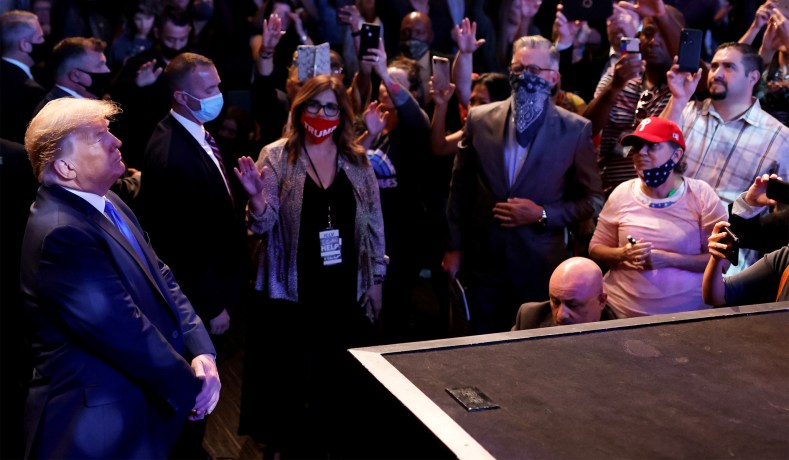
Can I ask a question in long form? Even at this late date, I’m not sure enough ink has been spilled in understanding Donald Trump’s peculiar political success and his bond with (a certain set of) white Evangelical voters. Our missed colleague David French mourned this in particular and liked to illustrate the corruption of Evangelical religion by politics by showing how, from the Clinton years to the Trump years, Evangelical Christians changed their answer on a poll question about whether character matters in political leadership. In the Clinton years, they were most likely to say it matters; in recent years, the least likely.
There have been many partial theories offered for why Evangelicals had such a strong attachment.
(1) Simple politics. Hillary Clinton and the Democratic Party oppose core white Evangelical interests on abortion, religious liberty, and homeschooling. Many Evangelicals are conservatives whose attachment to the national history, myths, and institutions is incompatible with progressivism.
(1b) Might be political desperation. As the culture becomes more hostile to Evangelicals, they become less selective about the leaders that champion their interests and more supportive of them through thick and thin.
(2) Not as religious as you think. There was some evidence in the 2016 primaries that Trump had a particularly strong bond with a non-churchgoing person who nevertheless identified as a white Evangelical Christian. Maybe Trump’s rhetorical focus on national rather than religious values is more appealing to this voter.
(3) More prejudiced than you think. Another theory is that Trump’s appeal is merely based on shared prejudices. White Evangelicals are haters, and so they liked Trump. The cruelty is the point, etc.
(4) Strongman theory. Evangelicals are particularly attracted to leaders with personal charisma. Trump’s larger-than-life persona mattered more than you think.
I’ve tended to think (1), (1b), and (2) are the most important factors. But I still don’t think this explains it very well. The very social-science data that French cites tells us something with which we have to grapple: A large number of Evangelical Christians who support the president do so with full consciousness of his lack of good character.
Like French, I’ve sometimes chided conservatives along the same lines, that character is destiny — that what we do forms us in predictable ways. And I’ve tended to emphasize the Pauline requirements of leadership, the kind of things preached in the epistles to Timothy and Titus.
But I’d be curious what he or others think of another theory: Evangelical formation in the biblical stories leads them to expect some “divine irony.” There are some eyebrow-raising names in the genealogy of Jesus. King David was God’s favored, but he fell. Paul was a persecutor of the Church then became its leading missionary. Jonah, the reluctant prophet, etc. Some of these are tales of repentance and warnings not to write people off. But not all of them. I’ve often wondered if instead of applying the Pauline strictures to Trump, many white Evangelicals supported Trump fully knowing that he had a bad character, precisely because they are open to these kinds of surprises: that a billionaire (alleged) might be the voice of the downtrodden, that a sybarite might defend the godly, etc. Am I wrong? Overthinking it?







